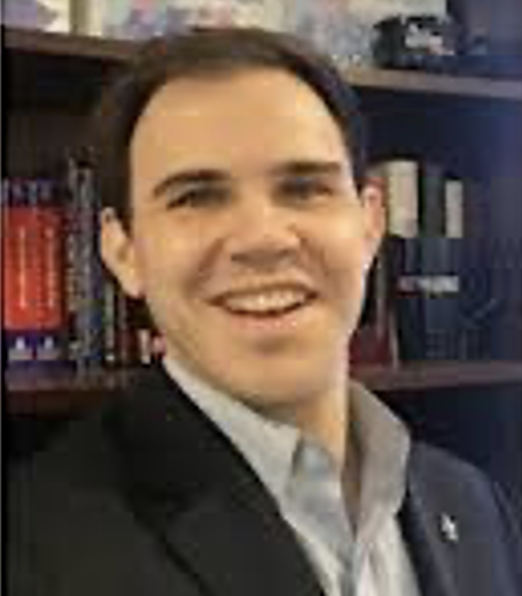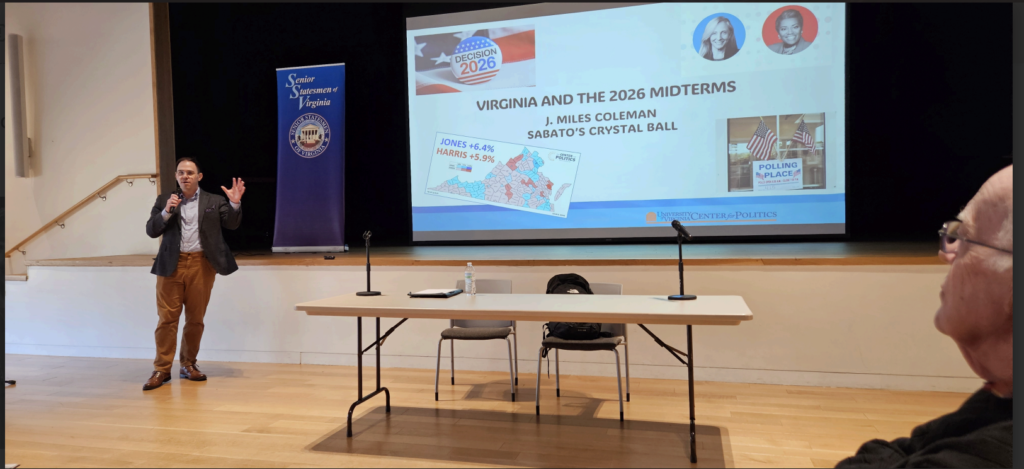SSV Future Programs
Posted August 2nd, 2024 by Amanda JordanCategories: Future
The public is welcome to our meetings. The meetings are held at The Center at Belvedere, 540 Belvedere Boulevard, Charlottesville, VA 22901, the second Wednesday of the month from 2:30 p.m. to 3:30 p.m. There is no charge, although we suggest you join our group which has been in existence for 25 years. The membership dues are only $25 per year and can be paid online on the ‘Join SSV’ page. Your dues will help us continue to deliver top-quality presentations. If you have questions, please email info@seniorstatesmen.org. Click the tab above to see samples of our newsletter.
Wednesday, Febuary 11, 2026
Every odd-numbered year, the nation’s attention turns to Virginia for hints about what’s coming down the political pike–and 2025 was not an exception. This talk explains what mattered in the results (and what didn’t), plus a look at what 2025’s returns may mean for the midterms. Statistics and analysis will abound!

J. Miles Coleman
Associate Editor
Sabato’s Crystal Ball
J. Miles Coleman, the Associate Editor, Sabato’s authoritative, non-partisan Crystal Ball Newsletter on American Campaigns and elections out of the University of Virginia Center for Politics. Miles has presented the insights of the Crystal Ball in previous years to the delight of the SSV attendees.
A political cartographer, Miles has generated a portfolio of thousands of electoral maps. Prior to joining the Center for Politics in 2019, Miles supported Decision Desk HQ, where he specialized in collecting and analyzing election night returns. Outlets that have cited his work include the Washington Post, Politico, and MSNBC’s The Rachel Maddow Show.
A New Orleans native, Miles is a graduate of Louisiana State University where he double-majored Anthropology and International Studies. When not combing over precinct spreadsheets or tweeting maps, or visiting Thailand, he can often be found running at the gym.
The program will be moderated by a SSV Board Member, Margie Swanson.
SSV IS ASKING ALL ATTENDEES TO REGISTER IN ADVANCE AT THE FOLLOWING LINK:
Senior Statesmen of Virginia | The Center Charlottesville (thecentercville.org)
FREE AND OPEN TO THE PUBLIC
Past Programs
Past programs are arranged in inverse chronological order. Speaker bios and links to videos and podcasts are given, with a program summary written by SSV board members




